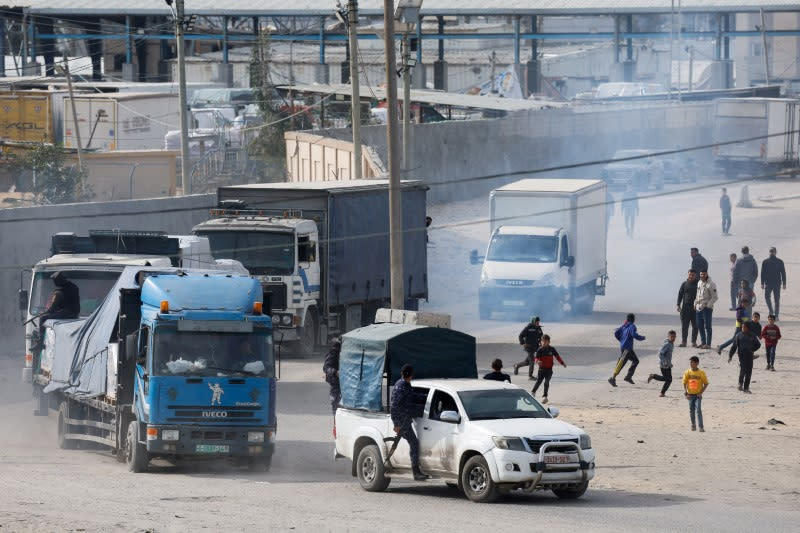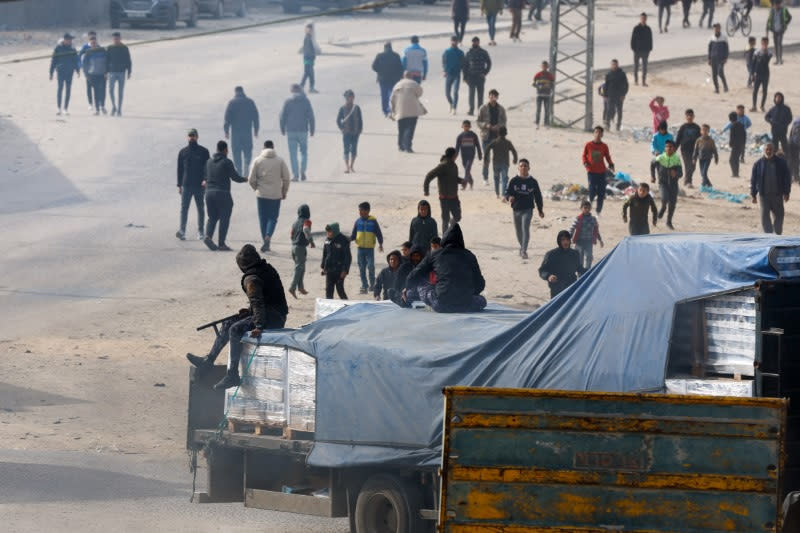Aid for Israeli hostages and Palestinian civilians arrives at Gaza border
CAIRO (Reuters) - Aid destined for Israeli hostages and Palestinian residents in the Gaza Strip was delivered to Egypt on Wednesday for transfer across the border, following a deal brokered by Qatar and France.
Two Qatari planes arrived in El Arish in the north of Egypt's Sinai Peninsula, where supplies were unloaded and transferred to the Rafah border crossing with Gaza about 28km (17 miles) away to the east, Egyptian security and Red Crescent officials said.
One of the planes was carrying medical packages for 45 of the 253 hostages Israel says were captured by Palestinian militant group Hamas during its deadly incursion into Israel on Oct. 7.
More than 100 hostages were released during a brief truce in late November.
Qatar has said that supplies for Palestinian civilians that arrived on Wednesday would be distributed to parts of Gaza worst affected by the conflict between Israel and Hamas sparked by the Oct. 7 attack, in exchange for the aid delivered to hostages.
A French official said earlier that the initial idea for the aid delivery had come from the families of some of the Israeli hostages, and that negotiations had continued for weeks.
Israel began letting aid into Gaza on Oct. 21, although agencies say the amount delivered falls far short of what is needed for Gaza's population of 2.3 million, and there have been backlogs of aid flown in to El Arish.
Israel's military campaign has left the entire population of Gaza facing crisis levels of hunger and at growing risk from disease as supplies run low, aid agencies say.
On Wednesday, Sigrid Kaag, the new U.N. Humanitarian and Reconstruction Coordinator for Gaza, visited Sinai as part of the effort to increase the flow of relief.
"I'm here because the mandate of the (U.N.) Security Council to see how we can facilitate, accelerate and expedite all areas of the assistance that is so much needed for civilians in Gaza, given the very acute humanitarian conditions that they have to live with," she told reporters.
(Reporting by Yusri Mohamed and Ahmed Mohamed Hassan; Writing by Aidan Lewis; Editing by Sharon Singleton)


